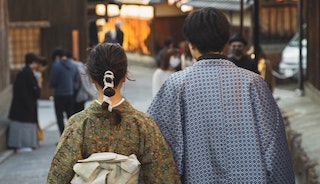SHIGA, May 27 (News On Japan) - A historic ryokan in the Ureshino hot spring area of Saga Prefecture has turned its former banquet hall into a Japanese language school, aiming to secure its future by training foreign workers. Roughly 40 students from Nepal and Pakistan are currently enrolled, studying Japanese and etiquette while working part-time at the inn or nearby farms.
The goal is for them to become a ready workforce in the region, which is facing a serious labor shortage.
The school opened this April inside Wataya Besso, a long-established ryokan known for its healing hot springs. The school is operated by a Tokyo-based Japanese language institution, making it an unusual case in Japan where most such schools are concentrated in urban areas. The former banquet hall—once a staple of the high-growth era for company trips and group tours—has been renovated into a classroom.
Students attend classes for two years. In addition to Japanese lessons, they also receive guidance on how to write resumes and follow labor regulations, such as Japan’s 28-hour-per-week cap for part-time work by foreign students. They practice polite greetings and time management as part of a broader focus on manners training.
The ryokan hopes graduates will help fill staffing gaps in the local hospitality industry. One student said, "I want to work at a good hotel."
Wataya Besso has been proactive in adapting to demographic and business shifts. In 2020, it converted several guest rooms into offices and began leasing them to IT firms based in the Tokyo metropolitan area. The idea to open the Japanese school also came from one such tenant. When asked to help train IT professionals in Japanese, the inn responded that there was a more urgent shortage in tourism personnel—and proposed launching a school instead.
That collaboration has yielded other innovations. A system development company headquartered in Tokyo created a payment solution allowing guests to pay for purchases made within the facility along with their lodging fees. The concept was born after the company set up an office inside the ryokan.
Since its founding in 1950, Wataya Besso has expanded its buildings over several decades to accommodate growing demand. Today, its bold shift in facility use—such as turning scenic dining halls and open-air baths into multi-purpose assets—demonstrates how traditional inns are experimenting with new ideas not only to survive but to contribute to regional revitalization.
Source: Television OSAKA NEWS















